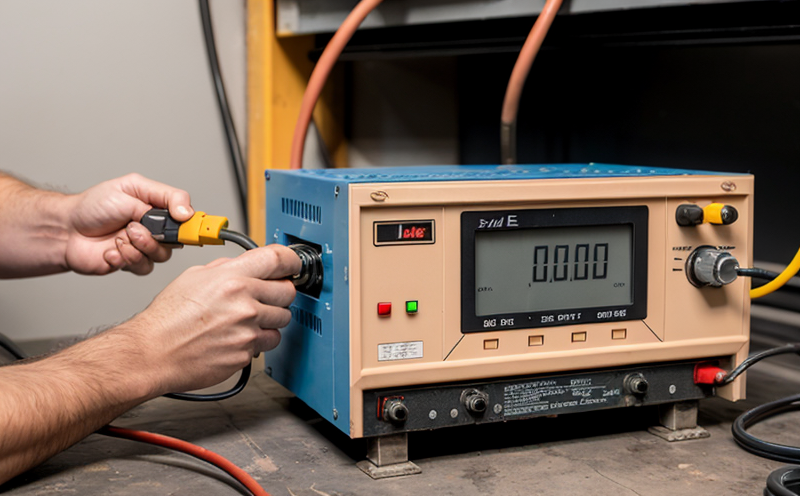JEDDEC JEP158 Lead-Free Die Process Compatibility Testing
The JEDEC JEP158 standard provides a comprehensive framework to ensure that semiconductor dies manufactured using lead-free processes are compatible with subsequent manufacturing and packaging steps. This service is crucial for the semiconductor industry, ensuring reliability, manufacturability, and compliance across supply chains.
Die-level electrical and functional testing under JEDEC JEP158 involves a series of tests designed to assess how well the die can withstand various stages in its manufacturing lifecycle. These include reflow soldering processes, which are critical for ensuring that the die adheres properly within the final product.
Reflow soldering is a process where the solder paste is heated above its melting point to join components and wires together. The lead-free nature of these processes introduces new challenges due to different thermal profiles compared to traditional lead-based processes. JEDEC JEP158 aims to standardize these tests, providing a consistent method for evaluating die compatibility.
The testing process typically involves placing the die on a test fixture and subjecting it to controlled heating cycles that mimic real-world reflow soldering conditions. The aim is to determine if there are any changes in electrical performance or physical integrity of the die post-reflow. This includes measuring key parameters such as resistance, capacitance, and signal integrity.
One of the most significant challenges in this testing process is ensuring that the die remains intact and functional after exposure to high temperatures. Lead-free processes often require higher reflow temperatures due to the different melting points of the solder materials used. This can put additional stress on the die, potentially leading to cracks or other defects.
To address these challenges, our testing facility uses state-of-the-art equipment capable of simulating a wide range of reflow profiles. This includes precise control over temperature, time, and atmosphere conditions. The use of high-quality fixtures ensures that the tests are accurate and repeatable, providing reliable data for evaluation.
The results of these tests provide crucial insights into the die's ability to withstand the rigors of modern manufacturing processes. This information is invaluable for quality managers, compliance officers, R&D engineers, and procurement teams who need to ensure that their suppliers are adhering to industry standards and producing reliable products.
By adhering to JEDEC JEP158, manufacturers can demonstrate compliance with international standards such as ISO 9001 for quality management systems, thereby enhancing their reputation in the global market. This testing service also helps companies navigate the complexities of regulatory requirements associated with lead-free processes.
For R&D engineers, this service offers a valuable tool for optimizing manufacturing processes and improving product performance. It allows them to identify potential issues early in the development cycle, reducing costly rework and delays.
Why It Matters
The importance of JEDEC JEP158 testing cannot be overstated, especially as the semiconductor industry continues to shift towards lead-free processes. These processes are driven by environmental concerns but also offer potential improvements in product reliability and performance.
Lead-free soldering requires higher reflow temperatures, which can cause stress on the die. If not managed properly, this could lead to increased defect rates, longer production cycles, and higher costs. By ensuring compatibility through rigorous testing, JEDEC JEP158 helps mitigate these risks.
The service also plays a crucial role in maintaining consistency across manufacturing processes. With global supply chains becoming increasingly complex, it is essential that all parties involved are using the same standards to ensure seamless integration of components. This leads to improved product quality and reduced variability in performance.
From an environmental perspective, lead-free soldering reduces the amount of toxic materials used in manufacturing processes. However, this also necessitates a thorough understanding of how these new materials interact with various stages of production. JEDEC JEP158 testing provides this critical knowledge, ensuring that the industry can continue to innovate while minimizing its ecological footprint.
Compliance with international standards like JEDEC JEP158 is not just beneficial for individual companies; it also contributes to the overall health and sustainability of the global semiconductor industry. By adhering to these standards, manufacturers can help drive technological advancements that benefit both businesses and consumers alike.
Benefits
- Enhanced Quality Assurance: Rigorous testing ensures that only compatible dies enter the manufacturing process, reducing the risk of defects and improving overall product quality.
- Improved Manufacturing Efficiency: By identifying potential issues early in the development cycle, this service helps streamline production processes, leading to faster time-to-market for new products.
- Increased Compliance: Adherence to international standards like JEDEC JEP158 ensures that manufacturers meet regulatory requirements, avoiding costly fines and reputational damage.
- Sustainability: The service supports the transition to environmentally friendly manufacturing processes by providing data on how different materials behave under various conditions.
- Innovation: By understanding the behavior of dies in lead-free environments, R&D teams can innovate more effectively, leading to better-performing and more reliable products.
International Acceptance and Recognition
The JEDEC JEP158 standard has been widely accepted by the semiconductor industry as a key method for ensuring die compatibility with lead-free processes. This recognition is reflected in its adoption by numerous international standards bodies, including ISO, IEC, and EN.
- ISO: The International Organization for Standardization has endorsed JEDEC JEP158 as a supplementary standard for quality management systems in the electronics industry. This endorsement highlights its importance in ensuring consistent and reliable manufacturing processes.
- IEC: The IEC, which sets global standards for electrical, electronic, and related technologies, has also recognized JEDEC JEP158 as a critical standard for evaluating die compatibility with lead-free soldering. This recognition underscores its role in promoting international interoperability and reducing non-compliance issues.
- EN: The European Committee for Standardization (CEN) and the European Committee for Electrotechnical Standardization (CENELEC) have incorporated JEDEC JEP158 into their own standards, further emphasizing its relevance in Europe. This inclusion ensures that manufacturers operating within EU markets are well-equipped to comply with local regulations.





